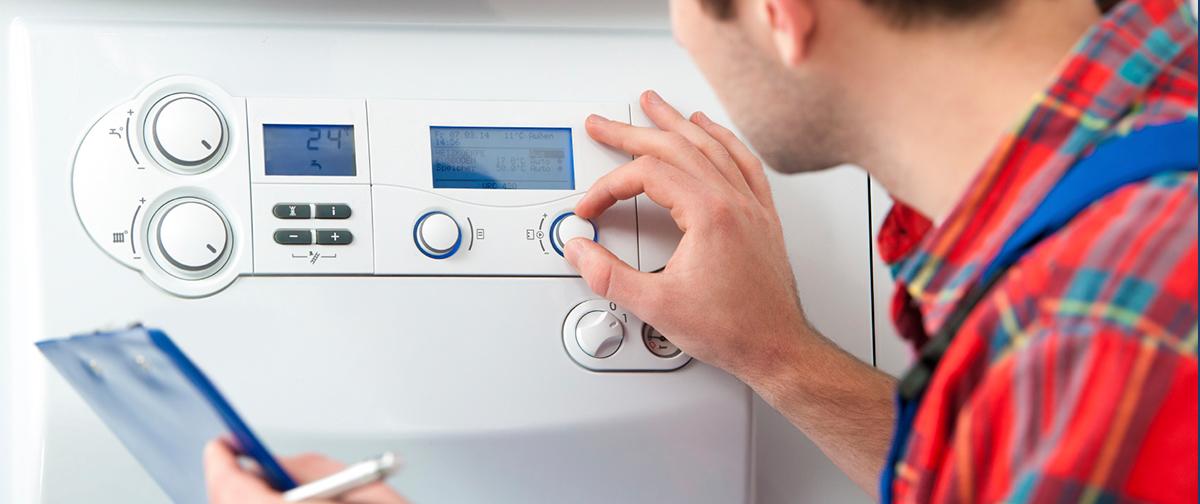5 Ways to Prevent a Boiler Breakdown

Whilst you can't take any measures that guarantee your boiler won't break down, there are things you can do to help prevent it. We've come up with 5 easy ways you can look after your boiler and help keep it running smoothly through its lifetime.
How to prevent a boiler breakdown
A boiler breakdown is the last thing you want. Fortunately, there are plenty of things you can do to keep your heating system healthy.
1. Get an annual boiler service
You should have your boiler serviced every single year. Without an annual boiler service, there’s a good chance that your boiler won’t last as long and could breakdown.
During a boiler service, an engineer will check your boiler inside and out. They’ll also see how well it works as it heats your home and hot water. As they make all of their checks, they’ll notice if something isn’t right and sort it out there and then (unless they need to order a replacement part). This could save you from having to fork out for an unexpected repair bill further down the line.
An engineer will also spot any risks from carbon monoxide. Although you should always have a working carbon monoxide alarm in your home if you have a gas boiler.
A thorough boiler service should be no less than 30 minutes long.
2. Run your heating in the summer
Many households turn their boiler off over the summer months.
This is a great way to save energy and cut your bills. However, turning a boiler off for a long period of time can cause parts to seize up. And if this happens it won’t work when you turn it on again after summer.
To prevent this, make sure to switch your boiler back on a few times over the summer to run the heating for a short time.
3. Prevent frozen pipes in winter
Frozen pipes can cause a lot of damage. Not only to your heating system but also your home if the pipe was to burst.
You can take preventative measures, which is especially beneficial for peace of mind if you are away from your property in the colder months. Setting your thermostat so that your heating stays on low whilst you are out, or so that it switches on occasionally can help.
You can also insulate the pipes. Pipe insulation can be found in DIY stores and is cheap and easy to fit.
4. Bleed your radiators
If your radiators aren't heating up properly, you may need to bleed them.
Bleeding radiators releases trapped air which can prevent them from filling correctly, keeping part or all of the radiator cold. Ensuring your radiators are heating efficiently means putting less strain on your boiler.
You should check the boiler pressure after bleeding radiators in your home to ensure it has not become too low - if it has you can simply top it up again using a filling loop.
5. Arrange a powerflush
A powerflush is a cleaning process which involves a heating engineer using a pumping unit to distribute a cleaning solution through your heating system to remove sludge, rust and other deposits. Generally a powerflush is required when you have a new condensing boiler installed but can also be performed to help remedy noisy boilers and pumps, cold radiators and other symptoms of build-up in the system. Having your heating system powerflushed can be slightly costly (usually between £350 and £1200) but it is worth doing if it will extend the life of your boiler.
How much does it cost to repair a boiler?
The average cost of a boiler repair in the UK is £314.
This will go up or down depending on the issue and work involved. You could also be looking at a higher bill if you live in a remote area or London where engineer’s rates tend to be higher.
There comes a point where it would be more cost-effective to replace your boiler. So, if your boiler has broken down and was installed more than 8 years ago, consider a new boiler.
Repairing an old boiler can be more expensive and take a much longer as spare parts can be harder to find. Plus, older boilers don’t run as efficiently as newer models so you’ll stand to save some money on your heating bills.
Get your boiler fixed
If your boiler has broken down then you’re in the right place.
Get free quotes from heating engineers in your area to repair your boiler today. Simply fill in our online form (it will only take a moment) then we’ll match you with local engineers who will give you a free quote.
It couldn’t be easier to get your boiler up and running again.



